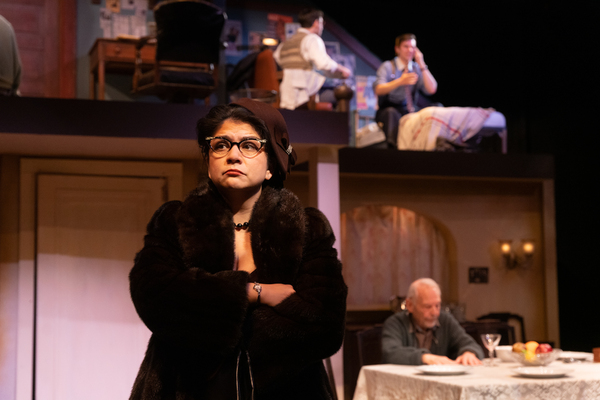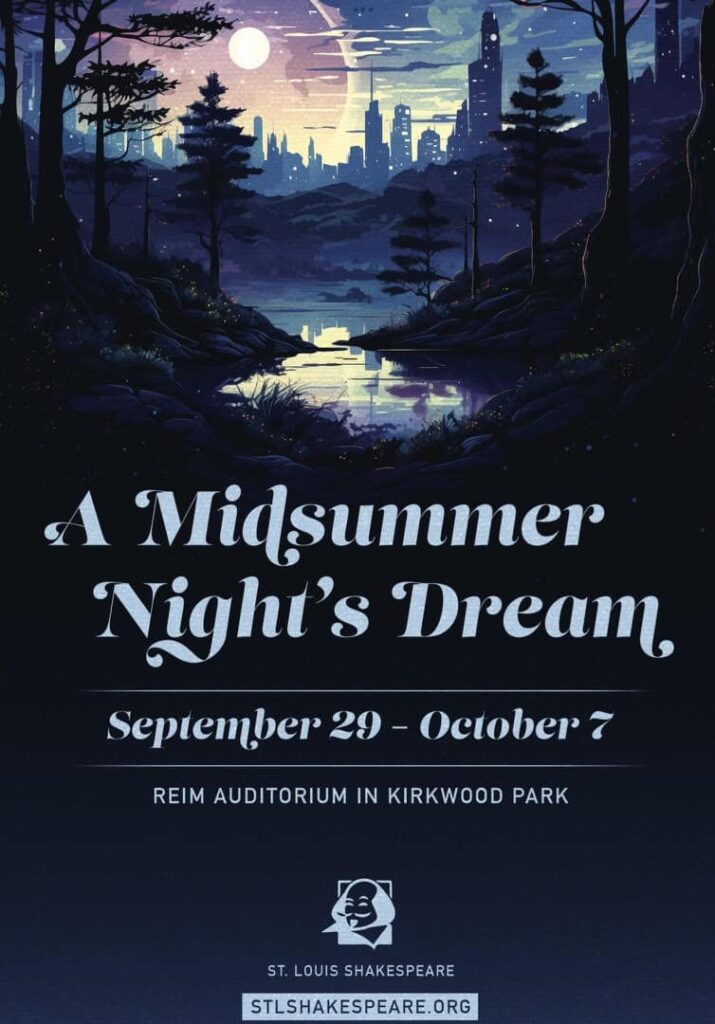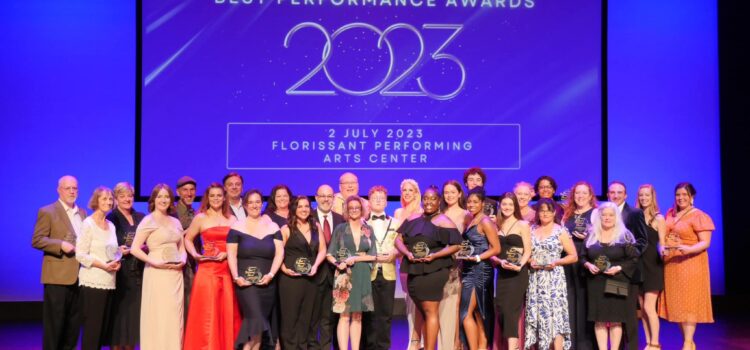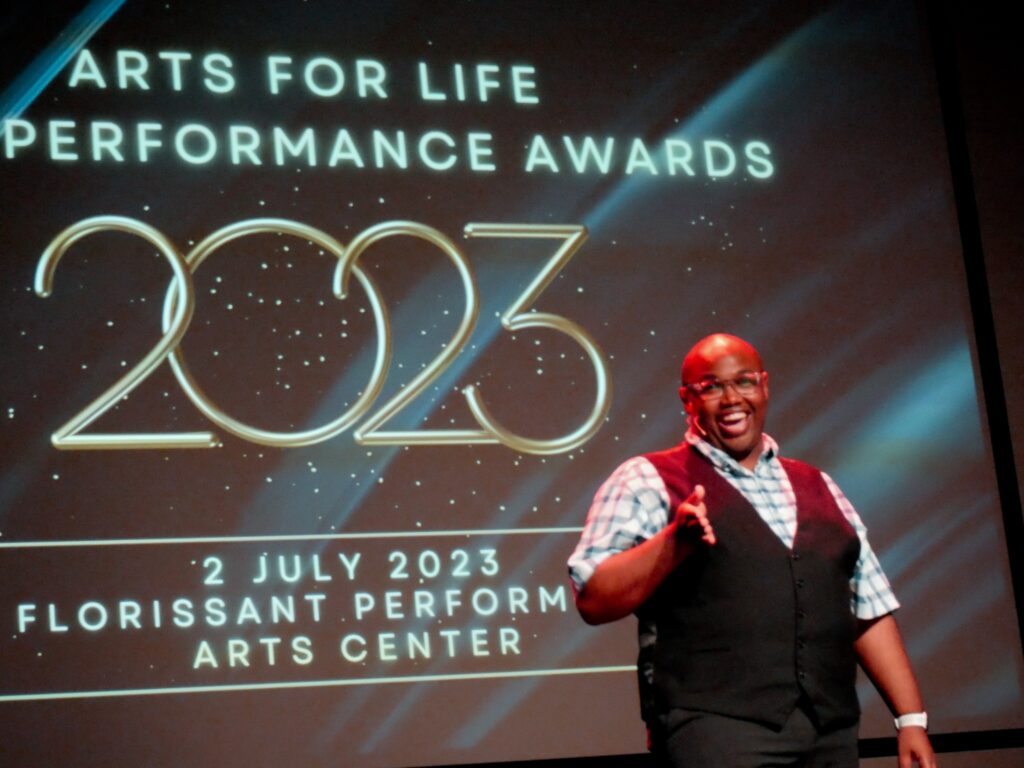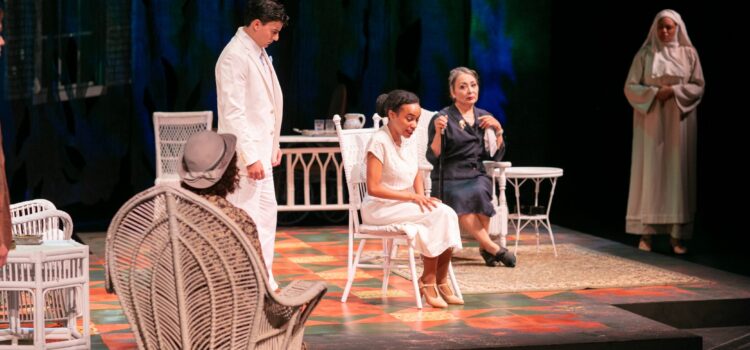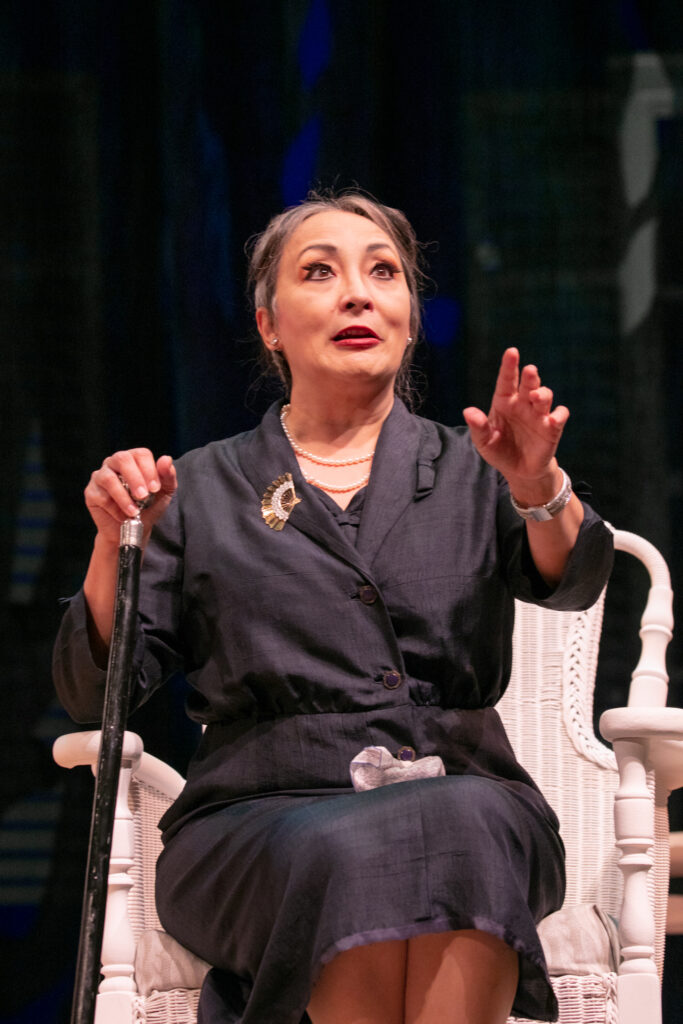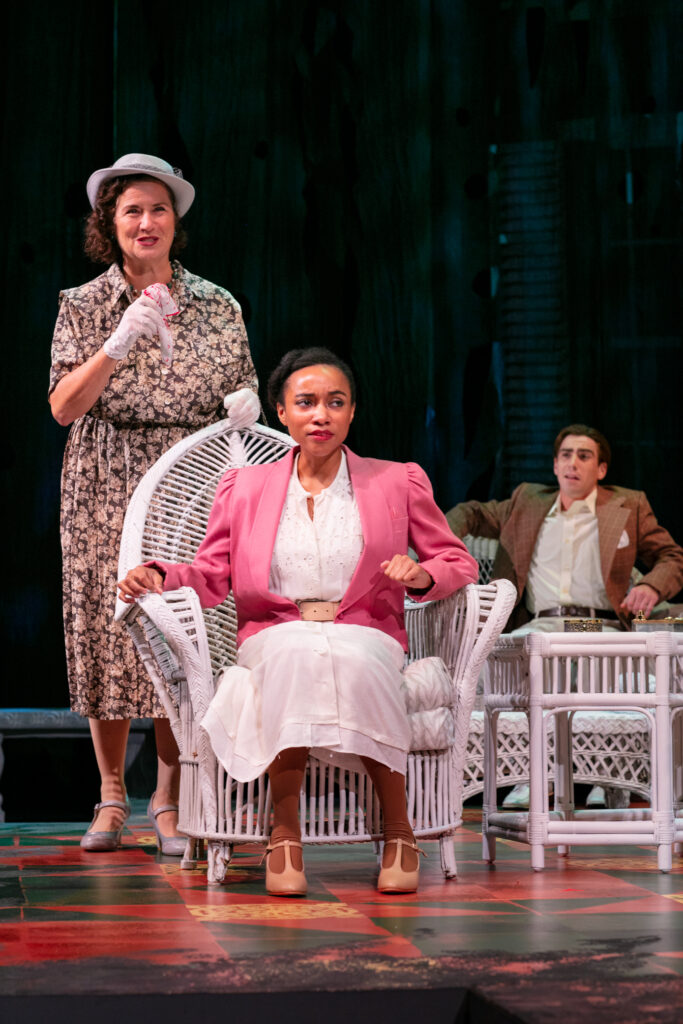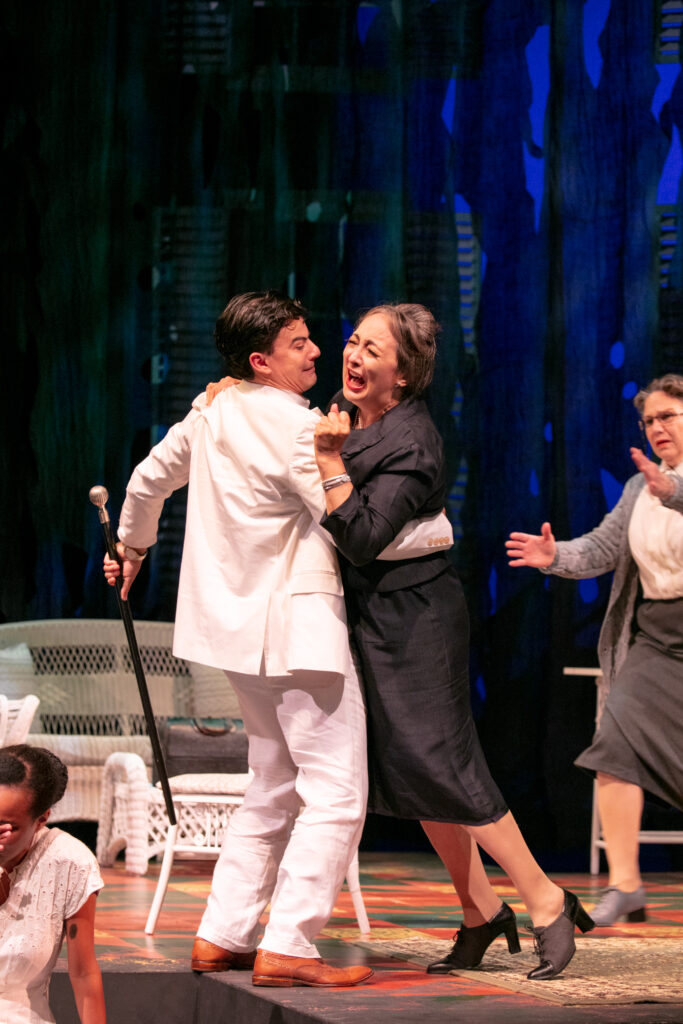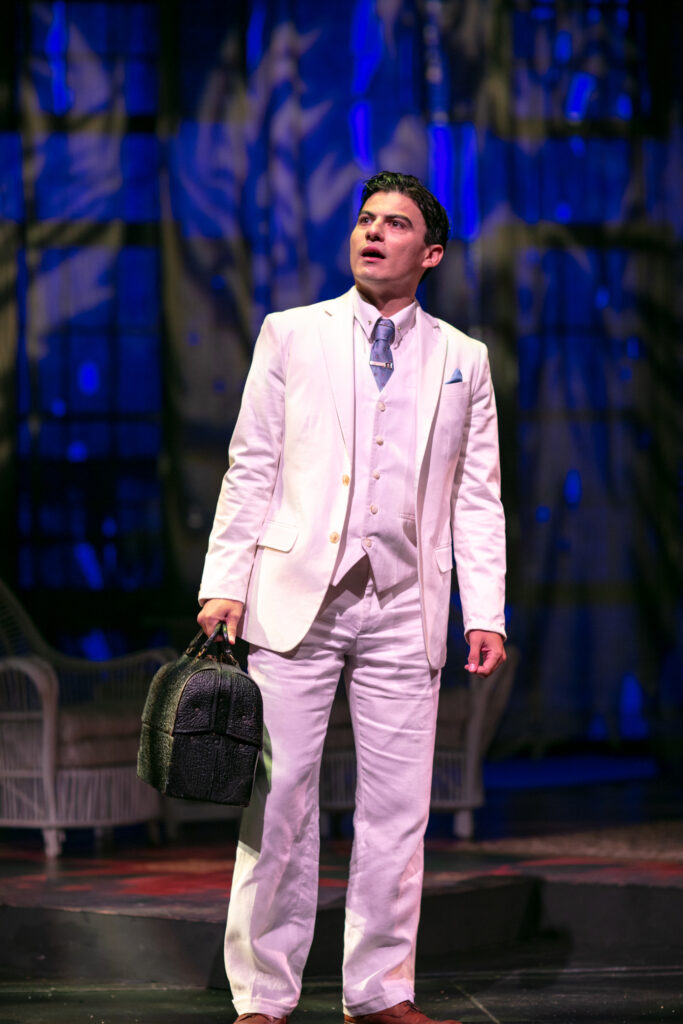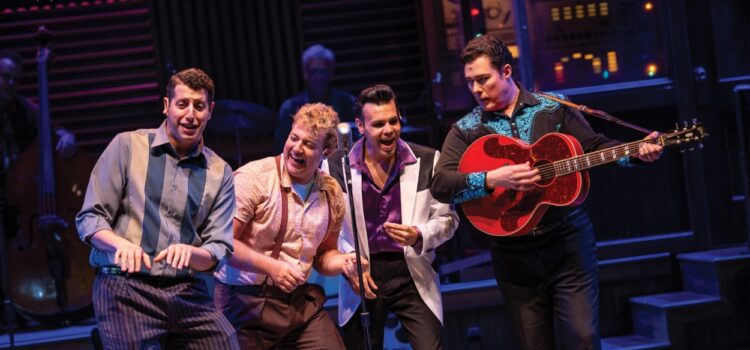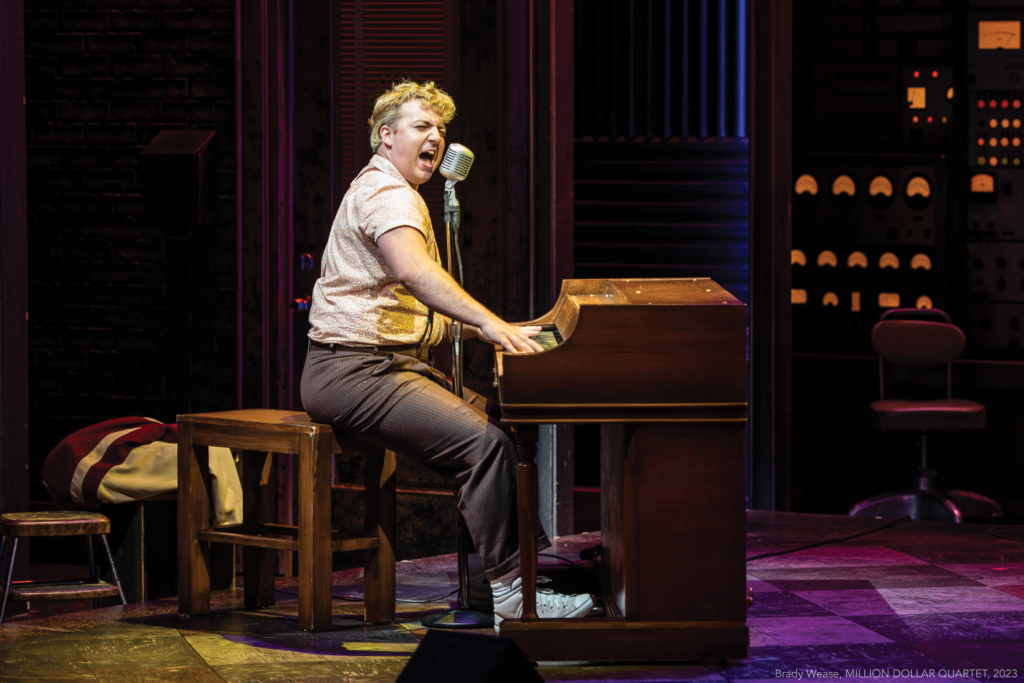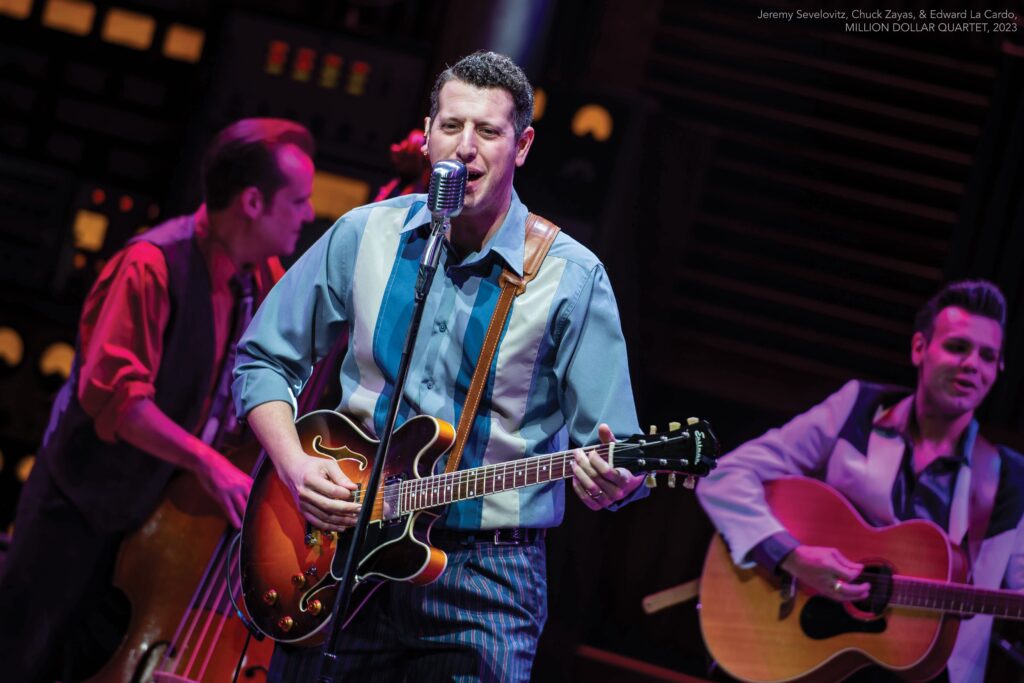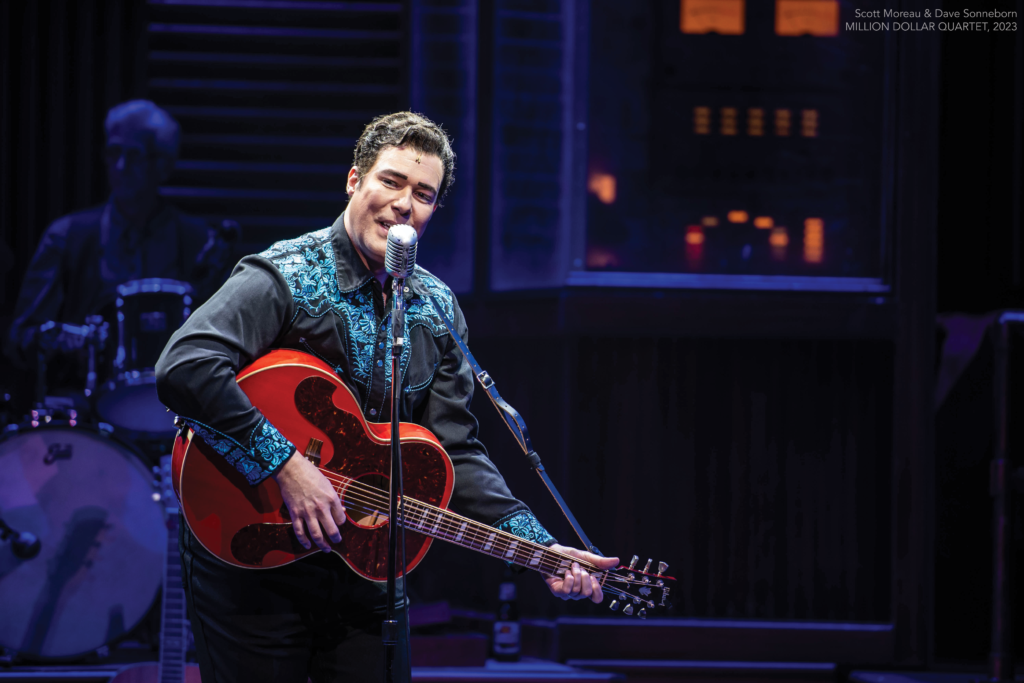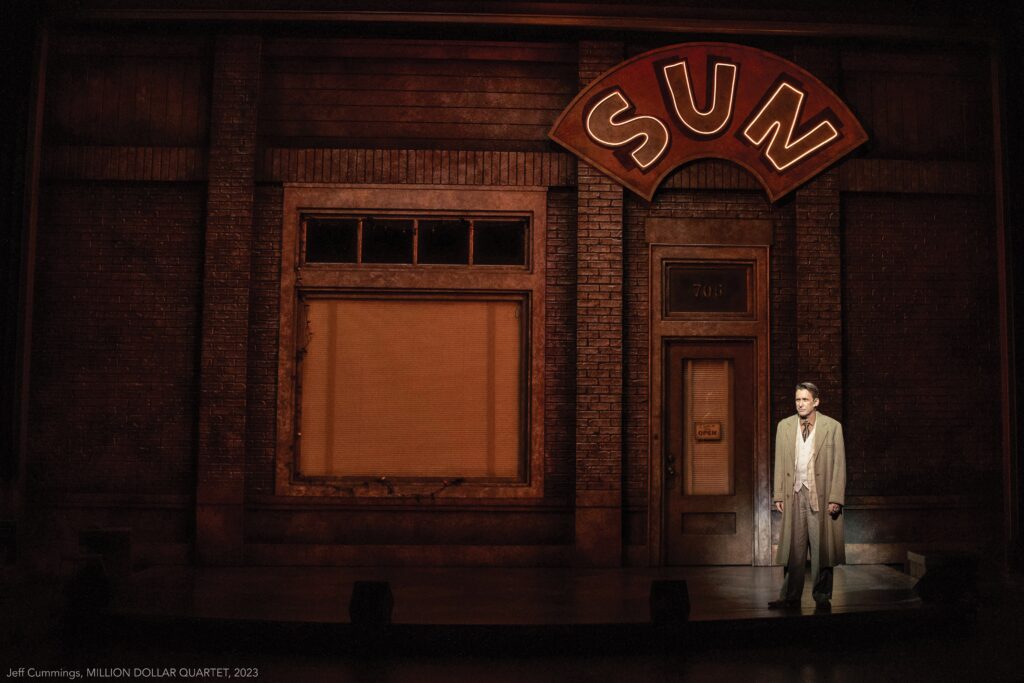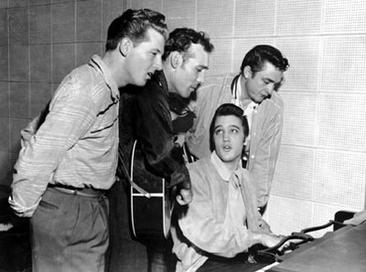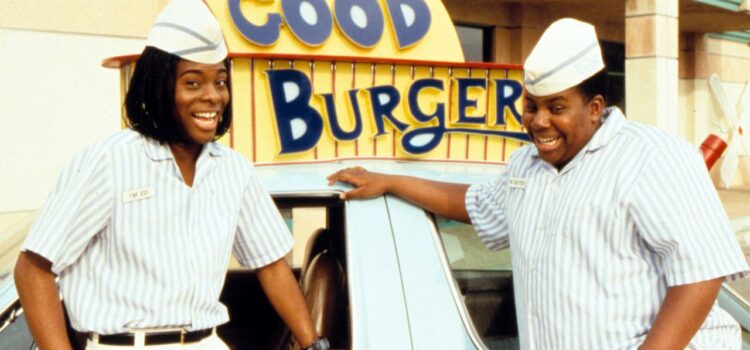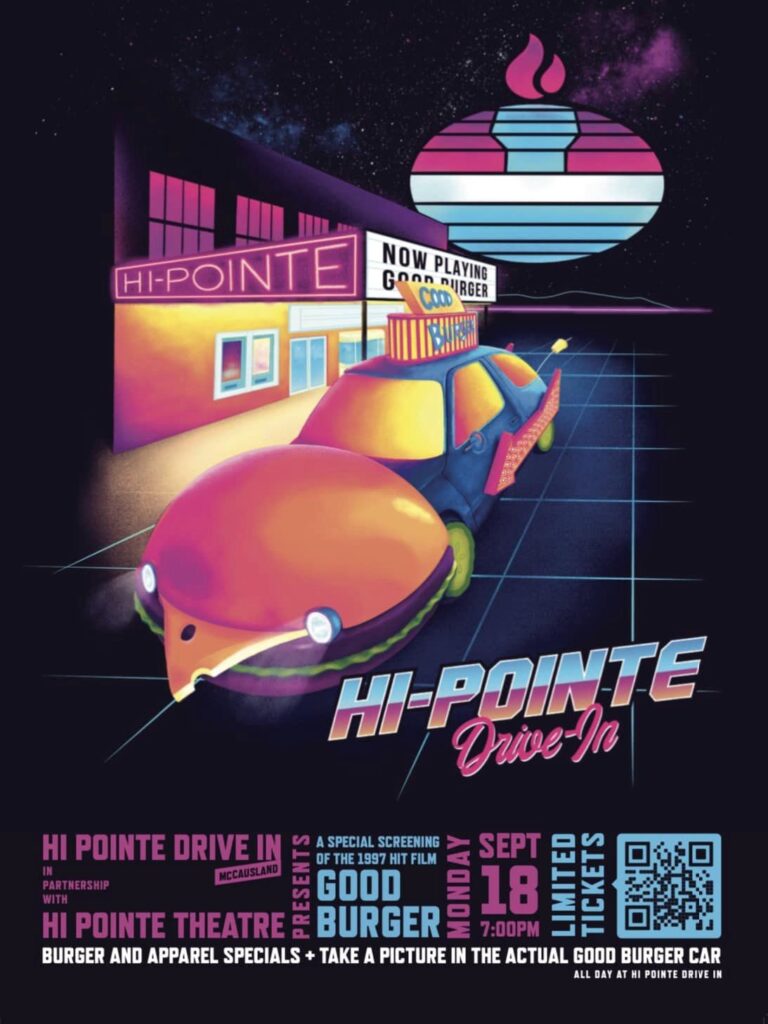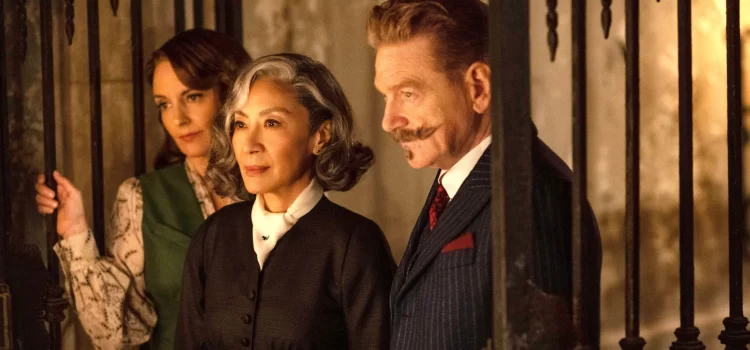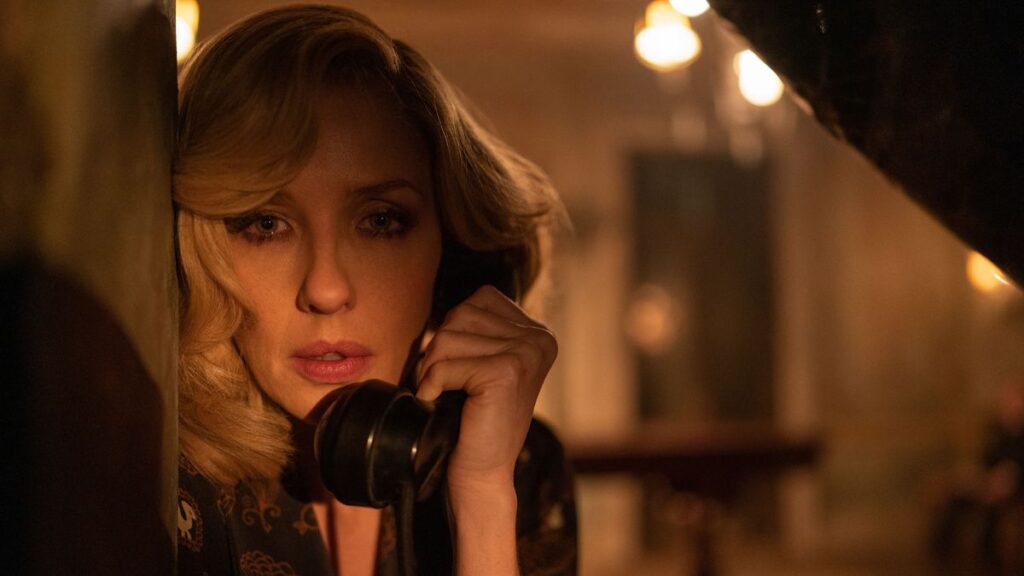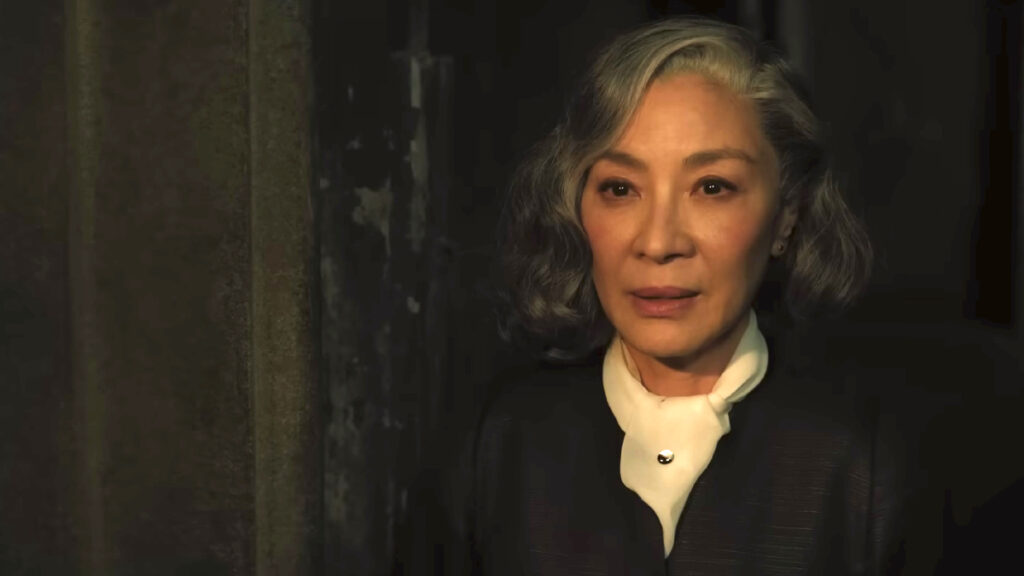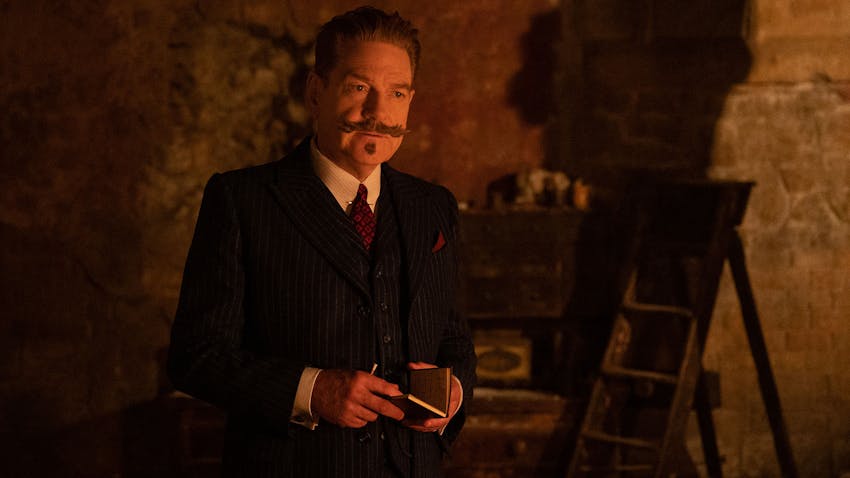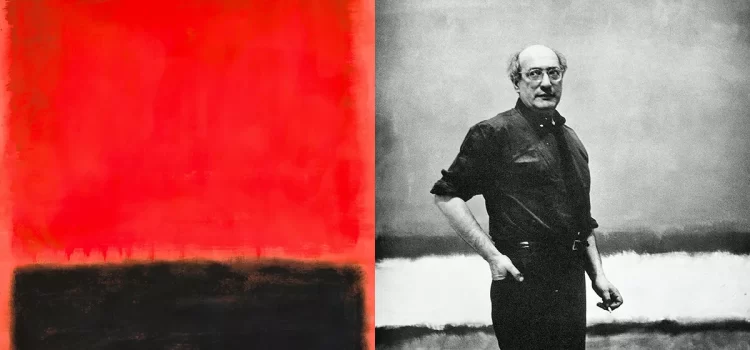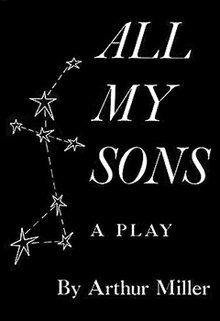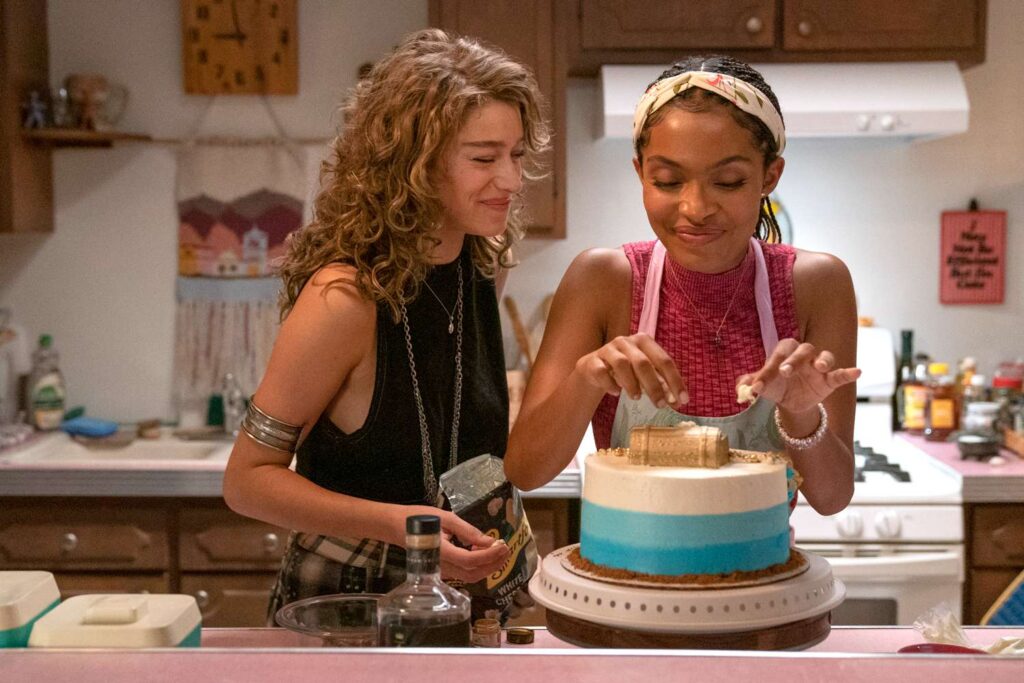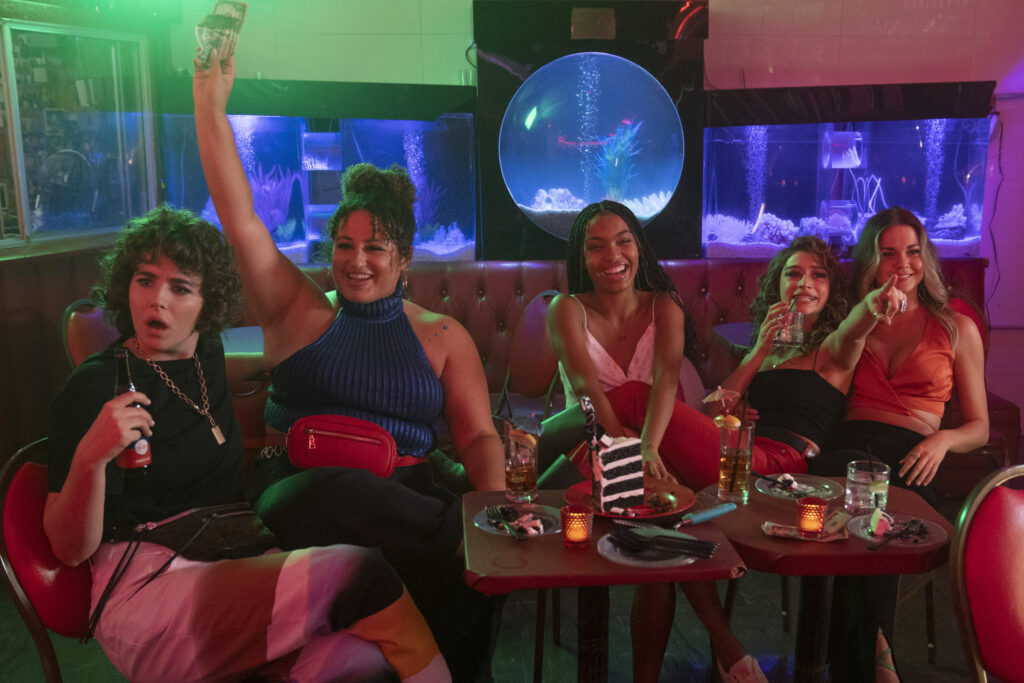By Lynn Venhaus
Surely, Christina Rios must be the Energizer Bunny in disguise, for she is non-stop, the epitome of a multi-hyphenate. Fourth grade math teacher by day at The Wilson School in Clayton, she is an actor, director, opera singer (trained lyric coloratura), producer, vocal coach, and intimacy coordinator — and is the mother of four children. She and her husband, Mark Kelley, moved to their dream home this summer. In her case, the plate is not just full, but spilling over.
Next project: Directing a new adaptation by John Wolbers of “A Midsummer Night’s Dream” for St. Louis Shakespeare, to be presented Sept. 29 – Oct. 7 at the Robert Reim Theatre in Kirkwood.
Christina’s resume includes a long list of challenges, so why should juggling five things at once ever be different? She was the artistic director and frequent director of new-to-St. Louis works at R-S Theatrics from 2009 to 2019.
This past year, she’s played Blanche in Neil Simon’s “Broadway Bound” at New Jewish Theatre last winter, part of the St. Louis Shakespeare Festival’s “Twelfth Night” in Forest Park’s Shakespeare Glen, and played the exasperated mom of four daughters in “In Bloom,” part of the New Play Festival at Tesseract Theatre Company this summer, acting alongside real daughter Rosario Rios-Kelley.
So, why is she tackling directing “A Midsummer Night’s Dream” for St. Louis Shakespeare? She discusses her vision and her views about creating art at this time in a very different world.
The cast of “A Midsummer Night’s Dream” includes her husband, Mark, also the sound designer and fight choreographer, and her son, Samuel Rios-Kelley. Principal roles are Mike Stephens as Theseus, Lexy Witcher as Hippolata, Molly Stout as Hermia, Jordan Duncan as Demetrius, Rhiannon Creighton as Helena, Noah Laster as Lysander, Mark Kelley as Quince, Fox Smith as Bottom, Luis Castro as Flute, Laurell Stevenson as Starveling, Dan Higgins as Snout, Riley Stevio as Snug, Jodi Stockton and Bryce A. Miller as Titania, Chuck Brinkley and Stephanie Merritt as Oberon, Tielere Cheatem as Puck, Ebony Easter as Peaseblossom, Remi Mark as Moth and Samuel Rios=Kelley as Boy.
Choreography by Mary Mathew, technical direction by Victoria Esquivel, costumes by Olivia Radle, scenic design by Morgan Brennan, Props by Meg Brinkley, lighting design by Erin Reilly, and sound design/fight choreography by Mark Kelley.
For more information, visit www.stlshakespeare.org.
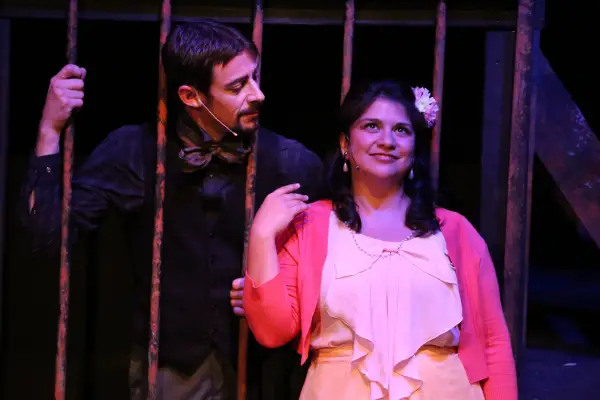
Q & A with Christina Rios
1. What is special about your latest project?
” I feel like we’ve all been in or seen ‘A Midsummer Night’s Dream’ at least 20 times, but it has always bothered me that Titania and Oberon never actually apologize for the chaos that they create with their fight, not to each other and definitely not to the world – I’m hoping this production speaks to that and offers some closure there.
“I also love the idea that the fairies can be other beings and ‘poof’ to wherever they want to go because…they’re fairies! I never understand why we, as directors, get characters that are immortal and then walk them around the stage like they’re plain old mortals – hopefully our fairies get to have a bit more fun.
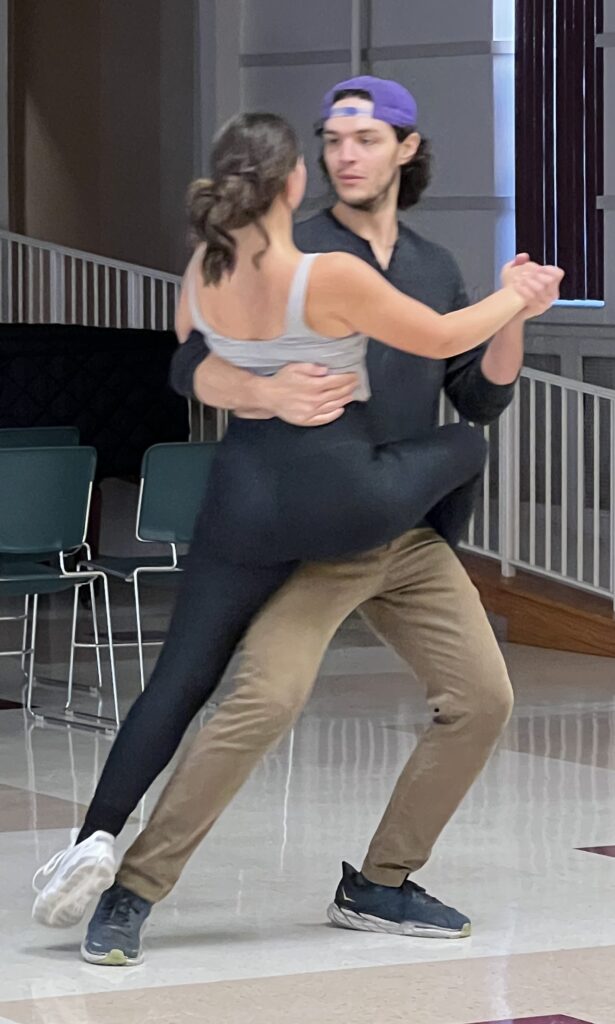
“We’ve also made Theseus and Hippolyta very ‘Harry and Meghan’ so it’s a royal marrying a commoner now and I think that allows for the tension and ultimately for the ‘awwww’s when they have their wedding dance.
“Speaking of this dance: Mary Mathers has choreographed a GORGEOUS piece that I think everyone should see! And finally, because our sound design can be summed up by calling it ‘Bridgerton Millennial Mixtape.'”.
2. Why did you choose your profession/pursue the arts?
“Wow, great question! I was always going to be a doctor, I wanted to be a neurosurgeon for most of my life, and acting and singing and performing was always just a fun thing I did to blow off steam. I feel like I tripped and landed in an impromptu audition for the head of a music program and suddenly medical school got switched out for opera school and I guess I never stopped.”
3. How would your friends describe you?
“I’m trying to keep the rumor going that I’m mean…but they’d probably say something about me being empathetic and warm…but don’t believe them.:
4. How do you like to spend your spare time?
I have 0 of that. BUT sometimes I do ignore things I should be working on and when I do: it’s ‘Law & Order SVU’ all the way! Olivia Benson is the life-giving elixir we all need more of.”
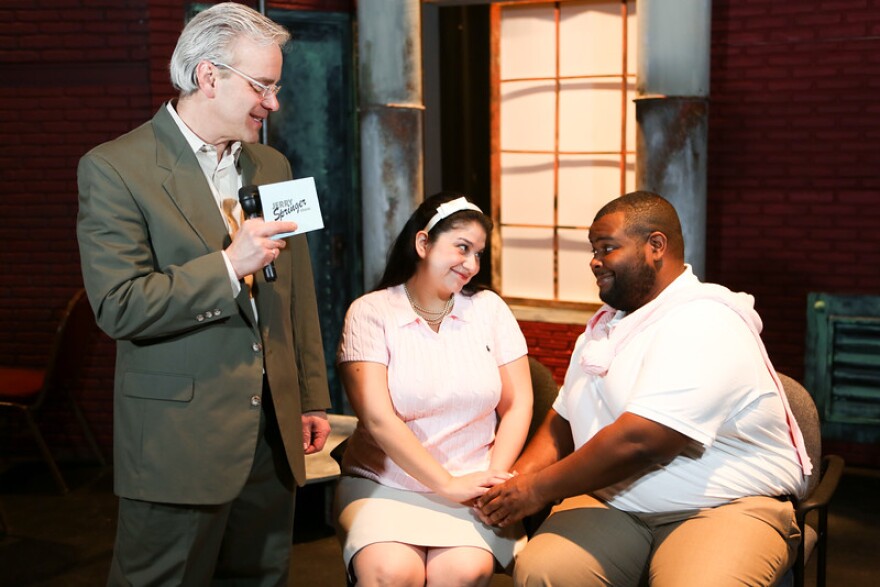
5. What is your current obsession?
“My house! We just bought a 120 year-old home a few months ago and I feel like I’m living in a castle! I can’t stop taking pictures of the way the light hits different parts…so I end up just treating my home like a toddler – ‘OOOOh!! Look at this, look how cute this room looks!’
6. What would people be surprised to find out about you?
“I’m really 142 years old but I stay young by drinking the tears of my enemies…OR: I guess that it’s hard to upset me because I’m wildly compartmentalized (thanks, trauma!) so it makes it look like I have the thickest of skin, but really it’s because it all just gets pushed WAAAAAY down.”
7. Can you share one of your most defining moments in life?
“Going back to school was terrifying – especially as a much older human…so much so that I asked my friend who was babysitting to please not tell anyone just in case I failed and had to drop out. But I graduated with my Master’s, in the height of the pandemic, with a 4.0. And that was sort of my ‘wait, can I seriously do ANYTHING I put my mind to??’ moment.”
8. Who do you admire most?
“Anyone who isn’t afraid of the truth, growth, and the betterment of the world.”.
9. What is at the top of your bucket list?
“It used to be smelling the Corpse Flower but I just did that! It was so stinky!!! I guess next up is for me to be present when my children all see France for the first time.”
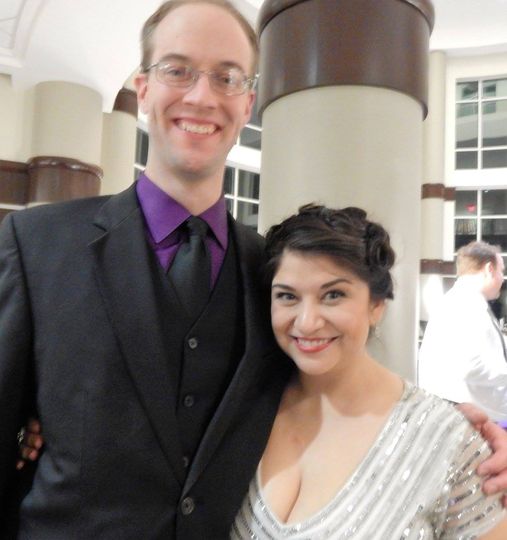
10. How were you affected by the pandemic years, and anything you would like to share about what got you through and any lesson learned during the isolation periods? Any reflections on how the arts were affected? And what it means to move forward?
Oof. I mean, I’m a raging introvert so the isolation wasn’t actually that hard – especially because it was 6 of us in a 1,300 sq. ft. house  But you know, it really sucked because I guess I thought we all learned something.
But you know, it really sucked because I guess I thought we all learned something.
Suddenly nurses and artists and teachers FELT like they cracked the code on getting the respect they deserved because we were ALL so hungry for entertainment and we all finally allowed ourselves to see the emotional toll that healthcare was taking on the people we’d always taken for granted and no one had really taken into account how much work teachers actually do until they had to start carrying some of the load.
“…and then it feels like, as SOON as we started inching our way out of isolation and back towards ‘the new normal’ it’s like we all totally forgot and it was back to being disrespectful towards educators and health care professionals and absolutely right back to devaluing the arts.
“Everyone says, ‘we don’t know how to make audiences come out again’ or ‘no one wants to leave their home now that they can order just about everything’ but art…you know…it’s never been about the product. If you think like that, it’s already part of the problem.
“The whole point of theatre, at least for me, is the collective experience of sitting in a darkened room and being told a story with strangers – and you all agree that you’re there and you’re there together and ready to be changed together. It’s a nonverbal contract that allows us all to be safe and at the same time, challenged. We sit and we watch and we are moved and if all of it comes together…a whole lot of the time, we leave better people than when we came. And you can’t do that from a couch in your living room, alone – it comes from being a part of something larger than yourself. And I think that’s beautiful.
“Moving forward we have to recognize that ‘artist’ is a career and therefore should be treated as one. We need to stop devaluing some aspects of art and prioritizing others. We need to remind the audiences that we cannot create what cannot be shared and that our cycle of effectiveness only works if we are all present. Cities, states, and this country needs to double down their funding efforts to make art happen all over and to not allow cost to be the prohibitive part of the process.”
11. What is your favorite thing to do in St. Louis?
“I love to go to Cherokee and just sit and watch the world go by while I have a refreshing beverage and delicious meal.”
12. What’s next?
“I’m doing the thing I’ve wanted to do for years!! I’ll be producing theatre in Hermann, Mo. WITH the people of Hermann AND St. Louis – I feel like we’re never going to advance as people if we just shout at each other over screens, so the idea is half the cast/staff from St. Louis and half from Hermann, and we all convene to create a show – one that we couldn’t have done without each other.
“The StL folks will stay in town for production week and on production weekends and the hope is that we all leave the production having been in each other’s spaces for so long that maybe we are all a little better for it. And then also, the people of Hermann have entertainment that’s not only for tourists but is by and for everyone!”
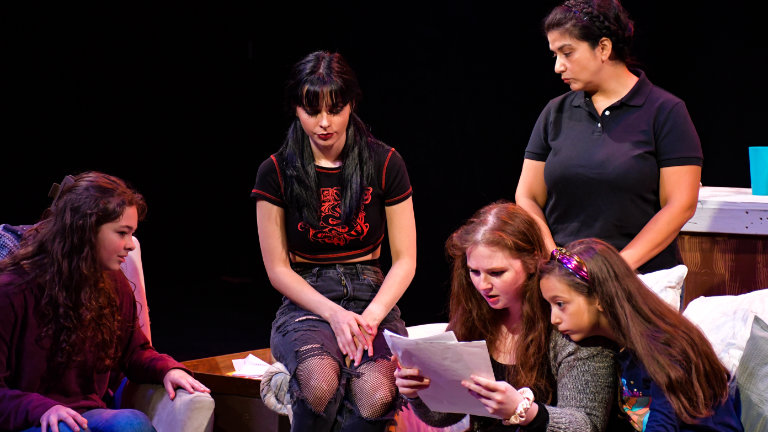
More About Christina Rios
Birthplace: Complicated but my family is in California and I grew up mostly in St. Louis
Current location: Ferguson
Family: I have a partner that I have been legally bound to for 13 years and 4 children ranging in age from 7-21
Education: I am a doctoral candidate and will receive my doctorate in May 2025, I also have a master’s degree and a couple of bachelor’s
Day job: Math teacher at a local, independent elementary school
First job: Mr. Wizards, baby! Basically worked for FroCus!
First movie you were involved in or made: Hmm…I think the first one that really became anything was a low budget horror movie that was shot in 2006 (?).
Favorite jobs/roles/plays or work in your medium? Directing “Adding Machine,’ ‘Parade,” “Mr. Burns,” “The Light in the Piazza,” and “A Man of No Importance” were all absolute highlights of my life. Being in “Twelfth Night”in 2023, with a cast of almost entirely BIPOC actors was fulfilling on a level I’ll never be able to truly articulate.
Dream job/opportunity: I want to direct opera in much the same way I have directed for years – on a small budget, telling stories, and showing people that these stories are actually all about them.
Awards/Honors/Achievements: hahahahahahahaha – yeah, I’ve never even been nominated for anything
Favorite quote/words to live by: “Art is a necessity, not a luxury” (it was me, I said that) and “You cannot be what you cannot see” (also me, I also say that a lot)
A song that makes you happy: Taylor Swift’s “Shake it Off”
